Do you love debating the benefits of Swiss Meringue, American, and French buttercreams? Have you watched every episode of Ace of Cakes and Cake Wars… twice? Is your piping neater than your handwriting? Then you may want to consider becoming a cake decorator.
While these pastry artists seem to effortlessly create cake masterpieces out of sugar, butter, and a bit of magic, becoming a talented cake decorator actually takes a whole lot of skill, experience, and perseverance. However, by following a few steps, you can make creating cake masterpieces your career.
What Does a Cake Decorator Do?
Cake decorators are baking and pastry professionals who turn ordinary sweet treats into aesthetically pleasing desserts. Some cake decorators bake and decorate entire cakes, while others are brought in only to work on the final decorating process. Additionally, some decorators specialize in certain types of designs or cakes, such as wedding cakes, tiered cakes, or intricate piping work.
These professionals may work in a variety of settings, including grocery stores, bakeries, and fine dining restaurants. They can also start and run their own cake decorating businesses.
Steps to Becoming a Cake Decorator
While not every cake decorator follows the same path (just ask Chef Instructor Steve Konopelski), the best decorators take similar steps on their cake decorating journeys. If you aim to become a cake decorator, here are the steps you should take.
1. Build the Basics with an Education in Baking and Pastry
While you may be tempted to jump right into flashy decorating techniques like textured buttercream and deckled edges, mastering advanced techniques may be easier if you understand the full pastry picture. At Auguste Escoffier School of Culinary Arts, baking and pastry students not only explore cake decorating techniques, but they can also dive into the science and art of baking.
Students start their programs with baking classes that might explore such fundamentals as the importance of measurement and proper kitchen sanitation. Next, students can build on these foundations by actually creating doughs, frostings, and other pastry creations.
When it comes time for cake decorating classes, students may have already explored how to create a smooth buttercream and glossy ganache. That means they can focus on practicing more advanced cake decorating techniques, like fine-line piping and watercolor fondant.
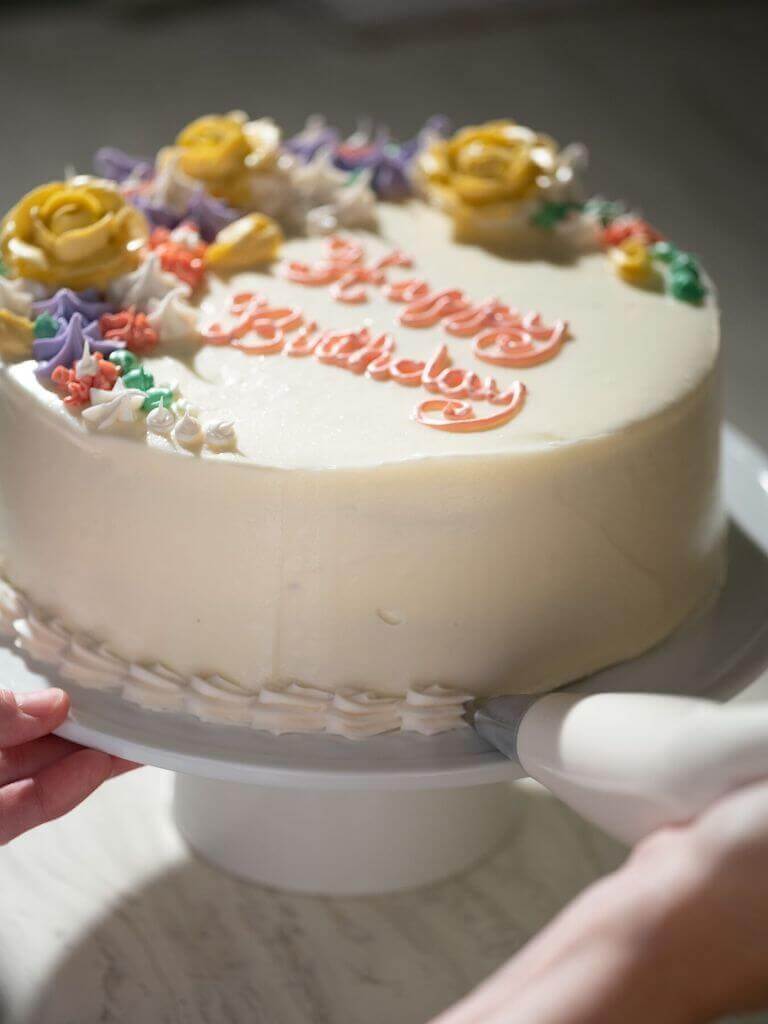
If you’re thinking that cake decorating classes aren’t the only way to gain experience with pastry techniques, you’re right – you might learn on your own or from another cake decorator. However, when you factor in the lack of guidance or exposure to new techniques, you may find it takes years to learn what a formal education can expose you to in half the time.
Additionally, baking school can offer more than just classroom instruction! Escoffier students have access to guidance from Chef Instructors as well as resume writing assistance, a vibrant alumni network, help with their job search, and much more.
2. Practice Your Skills as a Cake Decorator
After piping thousands of roses and crumbing hundreds of cakes, it’s time to take what you’ve learned into the real world.
Baking and Pastry students at Escoffier round out their programs by completing a hands-on industry externship at a bakery, restaurant, or other pastry establishment. This opportunity not only can give students a place to fine-tune their cake decorating skills, but it can also allow them to see the entire cake-making process, from order to delivery.
“Out of culinary school you can go intern with someone who does wedding cakes and learn the cake side of it that way. And then while you’re learning the cake, start learning the logistics side of it.”
Chef David Knight, Former Escoffier Chef Instructor, Wedding Cake Designer & Owner of a Farm-to-Table Patisserie*
After you complete an externship, you may eventually want to obtain a paid position as a cake decorator. This may involve filling a position at a bakery or grocery store, where you can begin to hone your skills and work your way up. Or it could entail opening your own bakery.
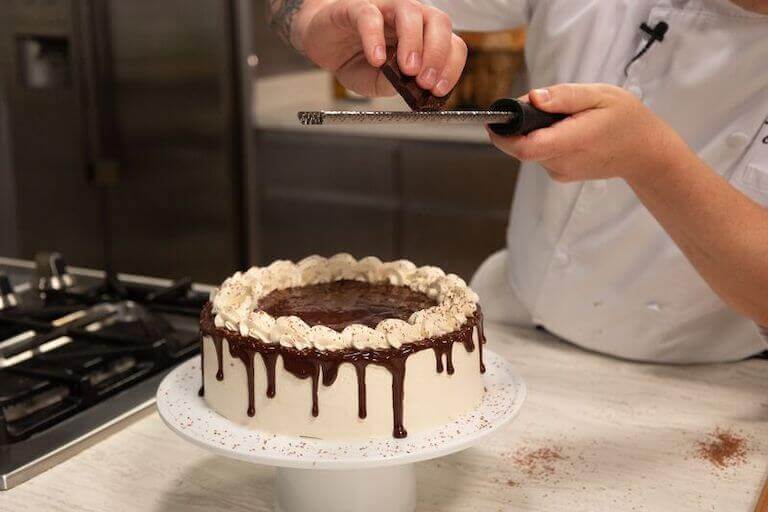
3. Find a Mentor and Listen to Their Advice
The truth is that entering the workforce doesn’t mean you’ll suddenly know everything about cakes and clients. Instead, this new stage of your cake decorating journey may bring even more questions and uncertainties.
Fortunately, you don’t have to face these challenges alone. Once you find a mentor, you can have a knowledgeable resource to help guide you along your journey.
Culinary school students can have the advantage of working with talented and experienced Chef Instructors, many of whom are happy to serve as mentors. While these industry professionals often provide feedback and guidance to students, often it’s up to the student to take the initiative and ask for extra help.
“I’m a big proponent of taking charge of your destiny. Find people you admire. Seek them out and emulate them as much as possible as you find your own style and niche in the industry.”
Anne Lanute, Escoffier Online Baking and Pastry Arts Executive Chef*
Mentors can serve as a sounding board for your ideas and can share their own experiences in the industry. Plus, they can help guide you through mistakes.
And the truth is, when you get started on your cake decorating journey, you’re probably going to make lots of mistakes. While you’ll recognize some – like cracking fondant or bulging filling – you may not know how to fix all of them. A mentor might be able to tell you why things went wrong and precisely what you can do differently next time.
Other times, you may make mistakes you don’t even recognize! (Perhaps if you beat your buttercream just a minute less, it would be easier to pipe smooth roses with sharp edges.) However, sometimes you need an experienced eye to let you know how to improve.
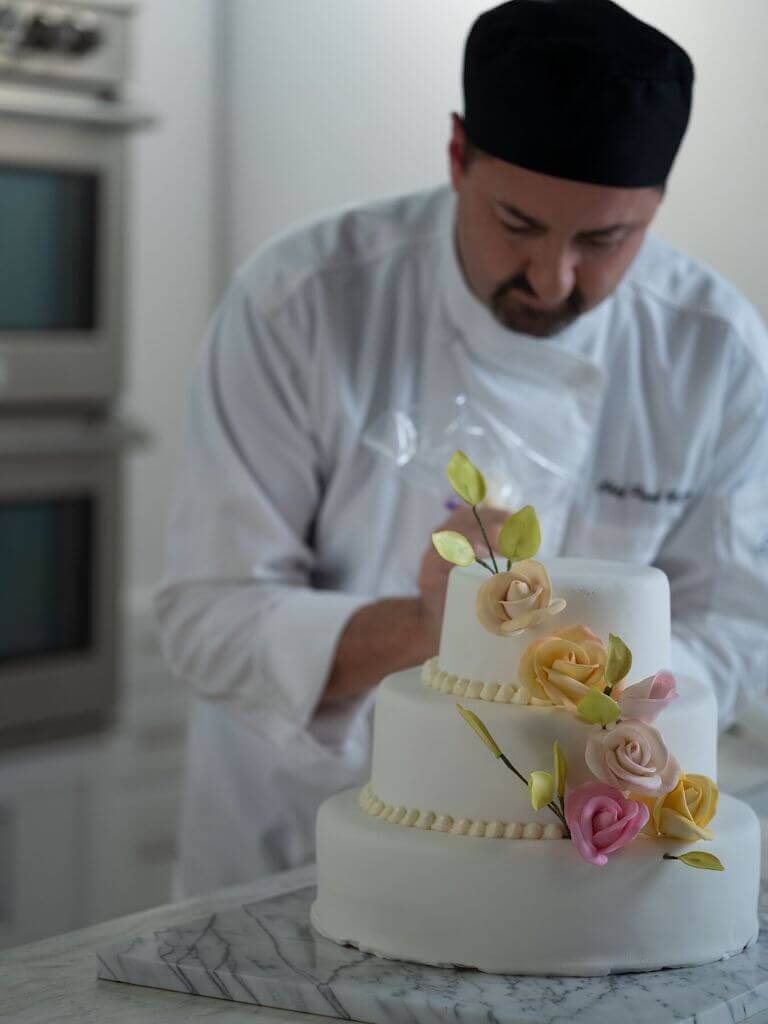
4. Develop a Signature Style and Capture It in a Portfolio
While you may be tempted to become skilled in every cake style, Chef Instructor Steve Konopelski advises against this. “If you try to make everything, you’ll never excel at any one thing,” he says.*
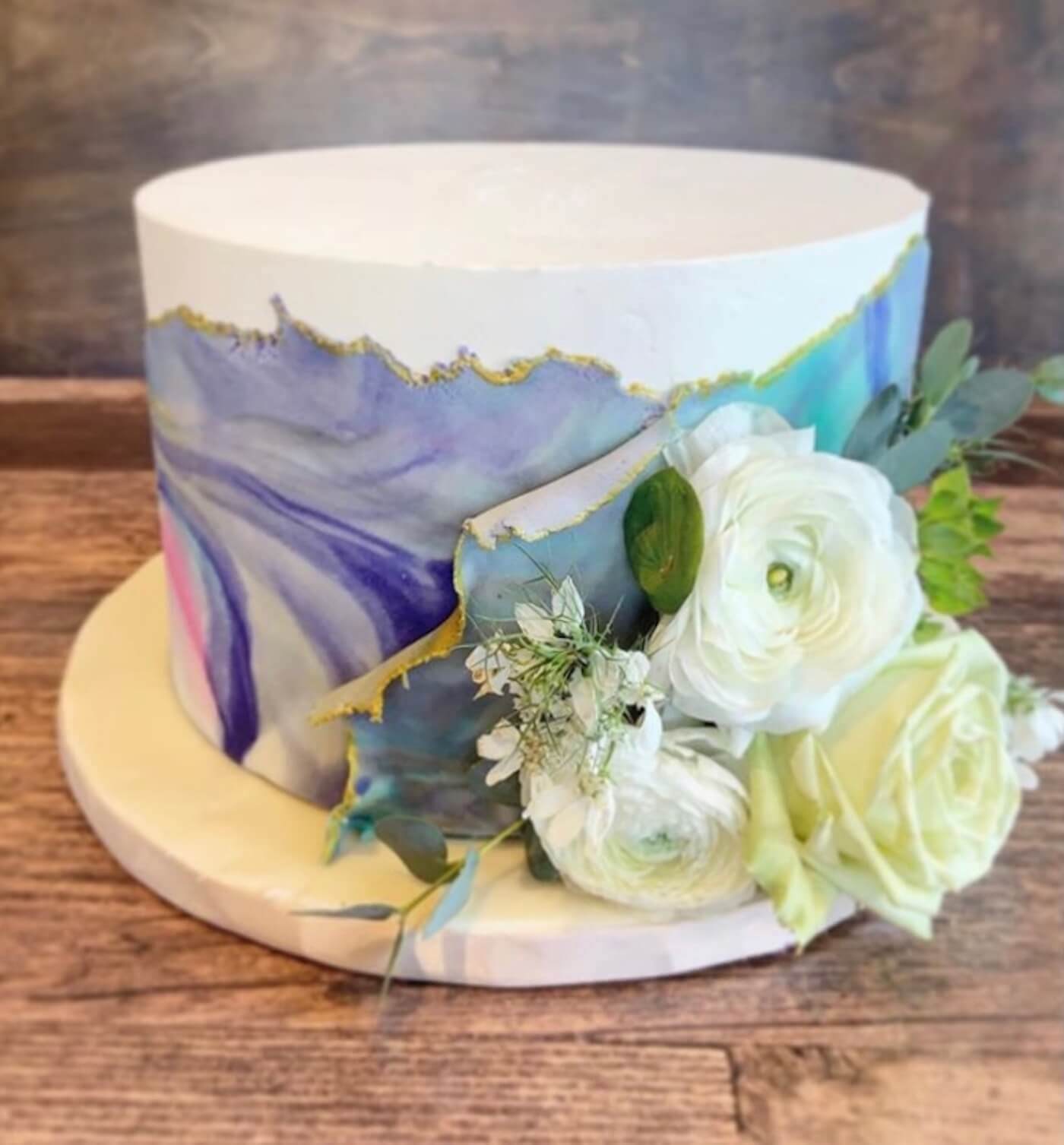
A signature design by Chef Steve Konopelski
Instead, draw upon your experiences, personality, and strengths to develop your own unique style. And don’t be afraid to get creative!
Once you’ve found a style that defines “you”, show it to the world. Take high-quality photographs of your cakes and organize them in a portfolio you can show to potential customers. While you don’t have to always stick to the same cake design, having a signature style can help you stand out from the crowd.
“Other schools don’t offer students the ability to try different flavor profiles, work on the presentation aspect and bring your own personality into it. Because I had the opportunity to try anything in school, I was more confident in bringing different flavor profiles to my cakes and pastries in the shop.”
Lezlie Mills Gibbs, Head Pastry Chef & Co-Kitchen Manager, La Pâtisserie by Luxe Sweets; Austin Pastry Arts graduate*
Start Your Cake Decorating Journey
Attending baking and pastry school can be a smart first step in your journey to become a cake decorator. With in-person baking & pastry programs in Boulder and Austin as well as online baking programs, Escoffier may have an option that works for you.
Interested in learning more about baking and pastry? Read these next:
- Pastry Chef vs. Baker: What’s the Difference?
- 4 Tips for Opening Your Own Bakery
- How to Become a Chocolatier
*Information may not reflect every student’s experience. Results and outcomes may be based on several factors, such as geographical region or previous experience.

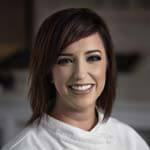 “I’m a big proponent of taking charge of your destiny. Find people you admire. Seek them out and emulate them as much as possible as you find your own style and niche in the industry.”
“I’m a big proponent of taking charge of your destiny. Find people you admire. Seek them out and emulate them as much as possible as you find your own style and niche in the industry.”

